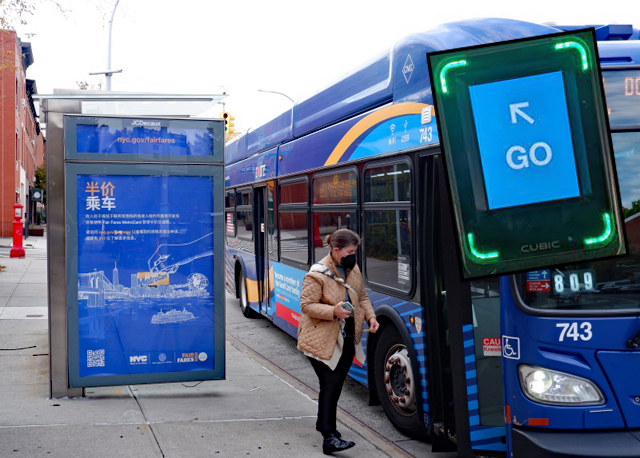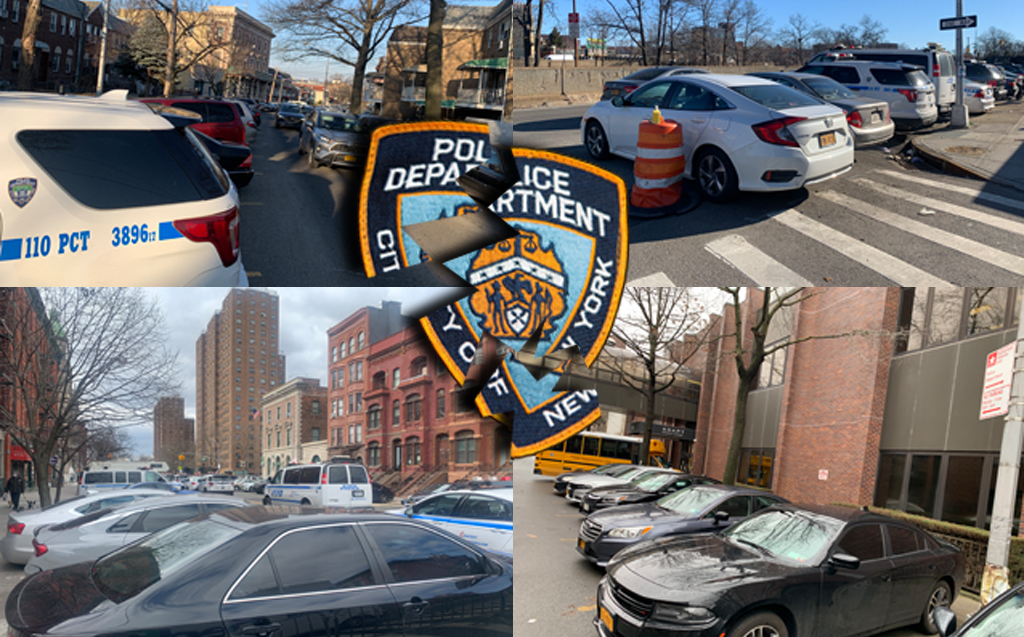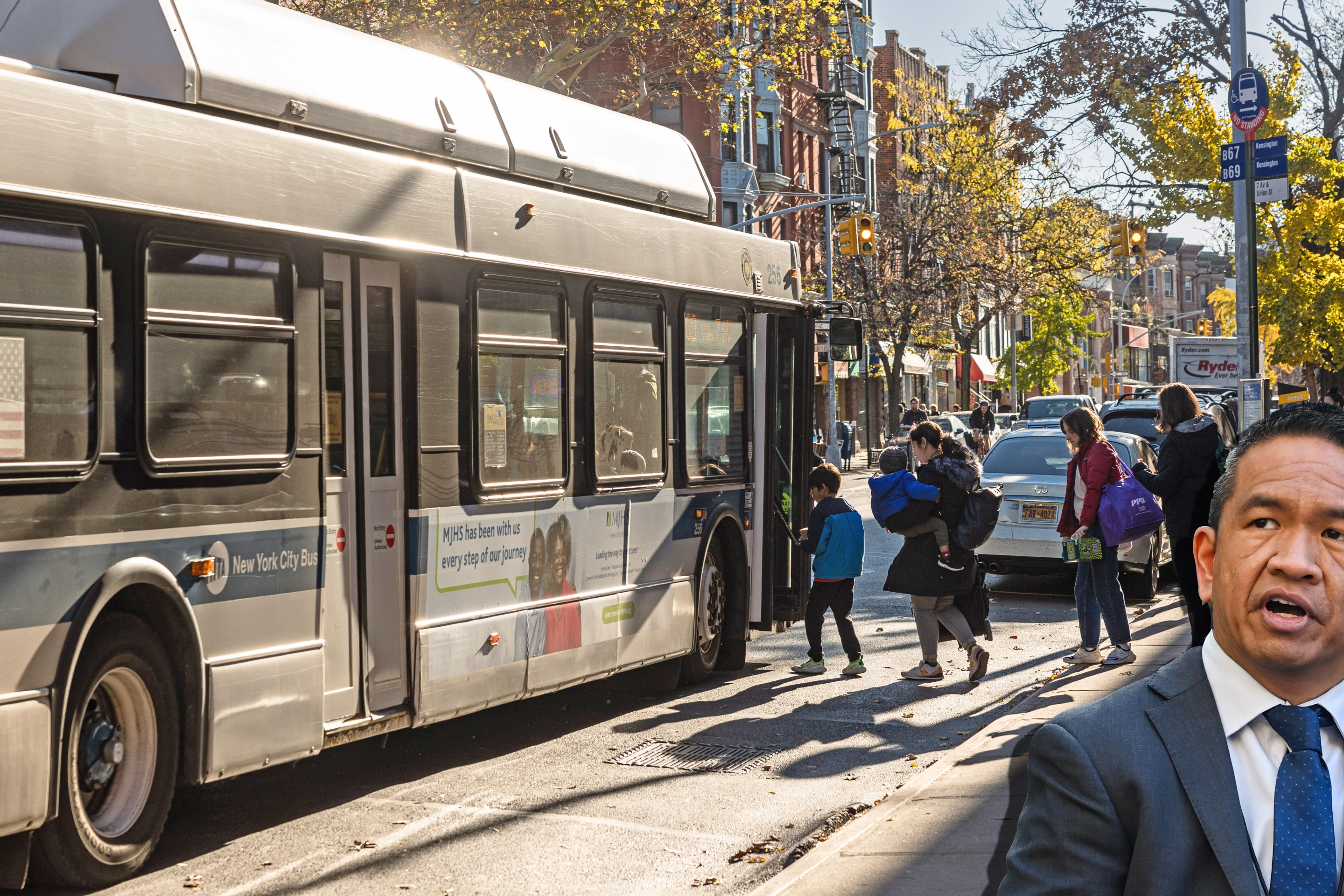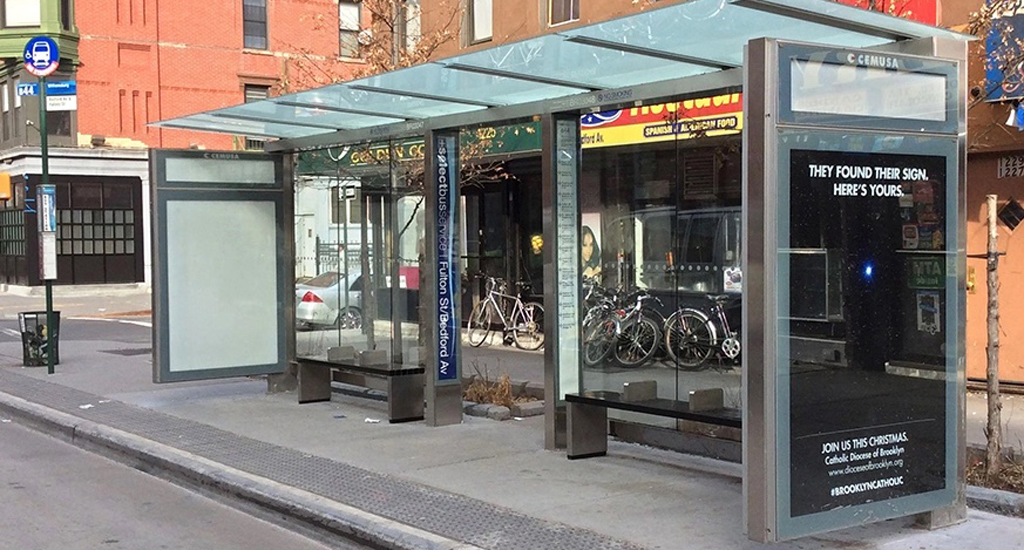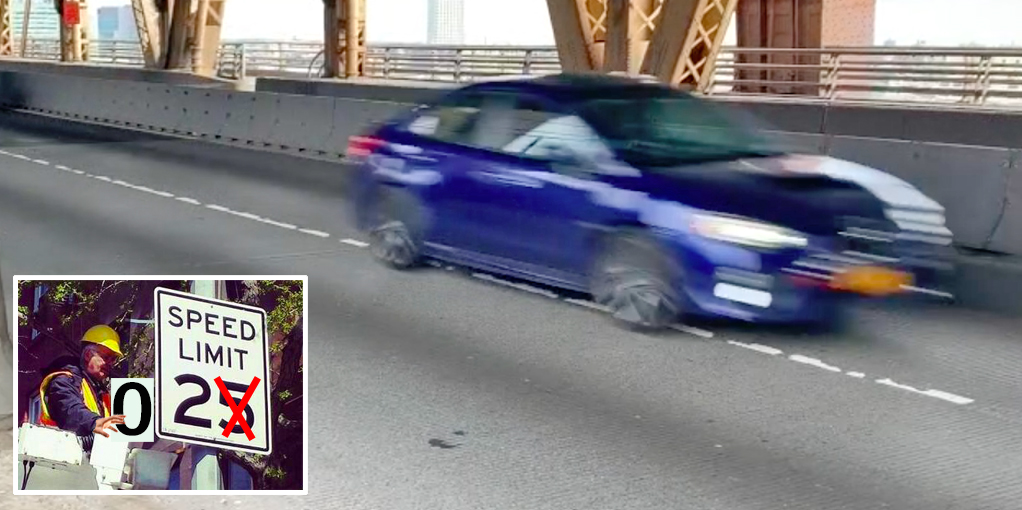The city's Fair Fares program providing half-priced MetroCards to low-income New Yorkers will transition to the MTA's OMNY payment system next year, Streetsblog has learned.
State transit and city leaders are eyeing a soft launch with a small number of Fair Fares riders some time before the full rollout, according to MTA spokesman Eugene Resnick, but agency reps did not have a date for that yet.
The MTA opened OMNY for its separate reduced fares for seniors and people with disabilities on Monday, and transit officials plan to move more fare deals — such as student passes, first responder passes, and employee transit benefit cards — to the new regime as they phase out the MetroCard by the end of 2023.
But the city manages Fair Fares, which for three years has offered discounted trips on the subways, buses, and Access-A-Ride for working-age New York City residents earning at or below the federal poverty line (which is just $13,590 for a single-person household).
The initiative has struggled to reach its full potential, as only about one-third of the people believed to be eligible have enrolled, even as MTA and city leaders have pushed to get more needy straphangers on board over the past year.
MTA Chairman Janno Lieber said in September 2021 that his state agency would work with the city to double the number Fair Fares participants, but as of Monday, only 276,814 people were signed up, a mere 14-percent increase since the transit leader's comment.
That number is less than 37 percent of the 753,400 New Yorkers that meet the income threshold, according to the Community Service Society, which tracks the program.
City officials blamed depressed transit ridership during the pandemic and New York City's above-average unemployment rate for the slow progress — but advocates say there are multiple problems with the program, including pegging the salary eligibility to the federal poverty level, which is less than half the Big Apple's minimum wage.
"People living below the absolute poverty line are much less likely to have a job and much less likely to be able to afford even half the fare," said Danny Pearlstein of Riders Alliance. "The city should double [enrollment], it should triple it, it should quadruple it, and the way to do it is to expand eligibility."
New York City had the strictest income threshold out of a dozen reduced-fare programs across the country studied by the National Academy of Sciences's Transportation Research Board last year. Transit systems in such cities as San Francisco, Seattle, and Denver pegged their discounted programs at or near 200 percent of the federal measure, the researchers found.
"Increasing the eligibility to 200 percent [of the federal poverty level] is a must," said Lisa Daglian, executive director of the Permanent Citizens Advisory Council, the MTA's in-house rider advocacy arm, adding that the current income limits are a "ridiculously tiny amount of money."
Mayor Adams and the Council for the first time made Fair Fares a permanent part of the city budget this year, restoring some of the cuts by former Mayor Bill de Blasio from 2020.
Hizzoner baselined funding at $75 million, and City Hall officials said they would add more money if there was increased demand. (De Blasio's original budget was $106 million in 2020, but he later slashed that to $53 million.) Despite Adams's commitment, enrollees have remained basically flat since March.
Mayor Adams also launched half-priced $1.35 tickets on the NYC Ferry system for Fair Fares riders, seniors, and people with disabilities last month while bumping the base boat fare from $2.75 to $4.
When he was asked about lifting the income cap during the budget negotiations in February, the mayor punted, but vowed to better promote Fair Fares.
"We want as many New Yorkers as possible to take advantage of Fair Fares, and will evaluate additional needs and potential expansion through the budget process," said mayoral spokeswoman Kate Smart.
Department of Social Services spokesman Nicholas Jacobelli said the agency, which runs Fair Fares, has boosted advertisements on social media, radio stations, community and ethnic newspapers, subway and bus shelter ads, and expanded outreach via community-based organizations.
The MTA is also looking at how to better get the message out as part of its "blue ribbon panel" on fare evasion launched in April, which is set to release its findings by the end of the year.
The Council has historically been the main champion for Fair Fares, starting under former Speaker Corey Johnson who pushed de Blasio to budget for the program in 2018, while the then-mayor was hesitant to give more money to the MTA controlled by his frequent foe, former Gov. Andrew Cuomo.
Council Speaker Adrienne Adams, who would be involved in negotiating a Fair Fares expansion in the next budget with Mayor Adams, said at a breakfast talk with the Citizens Union last month that she wanted to get more people signed up first before considering raising the income limits.
"Before we expand anything for Fair Fares, we need to make sure that everyone’s aware what Fair Fares is," the top pol said at the Sept. 28 event. "I happen to think that there has not been an expansive campaign around Fair Fares, so that those eligible already know what it is and know that they need to be in the program."
Those who are in the program know how valuable it is.
"Sometimes it’s hard when you have to chose between paying the fare and paying for food or other expenses," said Jackie Feliz Thomas, a Brooklyn mom-of-two who has used Fair Fares for two years. "I think it should be talked about more and it needs more exposure — people need to know about it. They should have people that do that, go out in the street and mention it."
